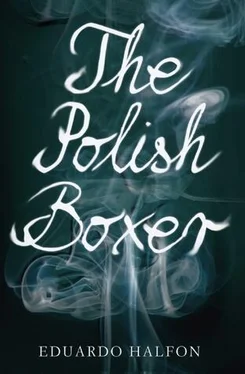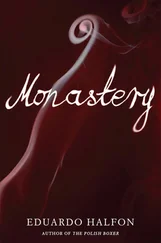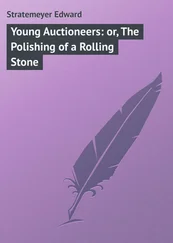Eduardo Halfon - The Polish Boxer
Здесь есть возможность читать онлайн «Eduardo Halfon - The Polish Boxer» весь текст электронной книги совершенно бесплатно (целиком полную версию без сокращений). В некоторых случаях можно слушать аудио, скачать через торрент в формате fb2 и присутствует краткое содержание. Год выпуска: 2012, Издательство: Bellevue Literary Press, Жанр: Современная проза, на английском языке. Описание произведения, (предисловие) а так же отзывы посетителей доступны на портале библиотеки ЛибКат.
- Название:The Polish Boxer
- Автор:
- Издательство:Bellevue Literary Press
- Жанр:
- Год:2012
- ISBN:нет данных
- Рейтинг книги:4 / 5. Голосов: 1
-
Избранное:Добавить в избранное
- Отзывы:
-
Ваша оценка:
- 80
- 1
- 2
- 3
- 4
- 5
The Polish Boxer: краткое содержание, описание и аннотация
Предлагаем к чтению аннотацию, описание, краткое содержание или предисловие (зависит от того, что написал сам автор книги «The Polish Boxer»). Если вы не нашли необходимую информацию о книге — напишите в комментариях, мы постараемся отыскать её.
marks the debut of a major new Latin American voice in English.
The Polish Boxer — читать онлайн бесплатно полную книгу (весь текст) целиком
Ниже представлен текст книги, разбитый по страницам. Система сохранения места последней прочитанной страницы, позволяет с удобством читать онлайн бесплатно книгу «The Polish Boxer», без необходимости каждый раз заново искать на чём Вы остановились. Поставьте закладку, и сможете в любой момент перейти на страницу, на которой закончили чтение.
Интервал:
Закладка:
In a futile but somehow necessary gesture, my grandfather lifted his glass, now empty of whiskey, to his lips.
It was a dark cell. Very damp. With a low ceiling. There was hardly any light at all. Or air. Just damp. And people piled up. Lots of people piled up. Some people crying. Other people murmuring the Kaddish.
I lit my cigarette.
My grandfather used to say that I was the same age as traffic lights, because the first traffic light in Guatemala had been installed at some intersection downtown the very day I was born. Idling in front of a traffic light was also where I asked my mother how babies got into women’s tummies. I was half-kneeling on the backseat of an enormous jade-colored Volvo that, for some reason, vibrated when it stopped at traffic lights. I didn’t mention that a friend (Has-bun) had confidentially told us during recess that a woman got pregnant when a man gave her a kiss on the lips, and another friend (Asturias) had argued, much more audaciously, that a man and a woman had to take off all their clothes together and then shower together and then even sleep together in the same bed, without having to touch each other. I stood in that wonderful space between the backseat and the two front seats and waited for an answer. The Volvo vibrated before a red light on Vista Hermosa Boulevard, the sky entirely blue, the smell of tobacco and aniseed chewing gum, the black and sugary look of a campesino in rough sandals who came over to beg for change, my mother’s embarrassed silence as she tried to find some words, these words: Well, when a woman wants a baby, she goes to the doctor and he gives her a blue pill if she wants a little boy and a pink pill if she wants a little girl, and then she takes the pill and that’s it, she gets pregnant. The light turned green. The Volvo stopped vibrating and I, still standing and holding on to whatever I could so I wouldn’t go flying, imagined myself stuck in a glass jar, all mixed up among blue little boys and pink little girls, my name engraved in bas-relief (just like the name Bayer on the aspirins I had to take sometimes and that tasted so much like plaster), still and silent as I waited for some lady to arrive at the doctor’s clinic (I saw her wide and distorted through the glass, like in one of those undulating mirrors at the circus) and swallow me with a little water (and with the ingenuous perception of a child, of course, I perceived the cruelty of chance, the casual violence that would toss me into the open hand of some woman, any woman, a big, sweaty, fortuitous hand that would then throw me into a mouth just as big, sweaty, and fortuitous) in order, finally, to introduce me into an unknown tummy so that I could be born. I’ve never been able to shake off the feeling of solitude and abandonment I felt stuck in that glass jar. Sometimes I forget it, or perhaps decide to forget it, or perhaps, absurdly, assure myself that I’ve completely forgotten it. Until something, anything, the slightest thing, sticks me back into that glass jar. For example: my first sexual encounter, at the age of fifteen, with a prostitute in a five-peso brothel called El Puente. For example: a mistaken room at the end of a trip to the Balkans. For example: a yellow canary that, in the middle of a square in Tecpán, chose a secret and pink prophecy. For example: the last icy handshake from a stuttering friend. For example: the claustrophobic image of the dark, damp, crowded cell stuffed with whispers where my grandfather was locked up, sixty years ago, in Block Eleven, in Auschwitz.
People crying and people saying Kaddish.
I brought over the ashtray. I felt a little light-headed, but I poured us the rest of the whiskey anyway.
What else have you got left when you know the next day you’re going to be shot, eh? Nothing. You either lie down and cry or you lie down and say Kaddish. I didn’t know the Kaddish. But that night, for the first time in my life, I also said Kaddish. I said Kaddish thinking of my parents and I said Kaddish thinking that the next day I’d be shot kneeling in front of the Black Wall of Auschwitz. It was ’42 by then and we’d all heard of the Black Wall at Auschwitz and I had seen the Black Wall with my own eyes as I got out of the truck and knew perfectly well that was where they shot people. Gnadenschuss, a single shot to the back of the neck. But the Black Wall of Auschwitz didn’t look as big as I’d imagined. It didn’t look as black, either. It was black, with little white pockmarks. It had white pockmarks all over it, said my grandfather while pressing invisible aerial keys with his index finger, and I, smoking, imagined a starry sky. He said: Splashes of white. He said: Made by the very bullets that had gone through the backs of so many necks.
It was very dark in the cell, he went on quickly, as if not to get lost in that same darkness. And a man sitting beside me began to speak to me in Polish. Maybe he heard me saying Kaddish and recognized my accent. He was a Jew from Łódź. We were both Jews from Łódź, but I was from Żeromskiego Street, near the Źielony Rynek market, and he was from the opposite side, near Poniatowskiego Park. He was a boxer from Łódź. A Polish boxer. And we talked all night in Polish. Or rather, he talked to me all night in Polish. He told me in Polish that he had been there for a long time, in Block Eleven, and that the Germans kept him alive because they liked to watch him box. He told me in Polish that the next day they’d put me on trial and he told me in Polish what I should say during that trial and what I shouldn’t say during that trial. And that’s how it went. The next day, two Germans dragged me out of the cell, took me to a young Jewish man, who tattooed this number on my arm, and then they left me in an office, where I was put on trial by a young woman, and I saved myself by telling this young woman everything the Polish boxer had told me to say and not telling the young woman everything the Polish boxer had told me not to say. You see? I used his words and his words saved my life and I never knew the Polish boxer’s name, never saw his face. He was probably shot.
I stubbed out my cigarette in the ashtray and downed the last sip of whiskey. I wanted to ask him something about the number or about that young Jewish man who had tattooed him. But I only asked what the Polish boxer had said. He seemed not to understand my question, and so I repeated it, a bit louder, a bit more anxiously. What did the boxer tell you to say and not say, Oitze, during that trial?
My grandfather laughed, still confused, and leaned back, and I remembered that he refused to speak Polish, that he had spent sixty years refusing to speak a single word in his mother tongue, in the mother tongue of those who, in November of ’39, he always said, had betrayed him.
I never found out if my grandfather didn’t remember the Polish boxer’s words, or if he chose not to tell them to me, or if they simply didn’t matter anymore, if they had now served their purpose as words and so had disappeared forever, along with the Polish boxer who spoke them one dark night.
Once more, I sat looking at my grandfather’s number, 69752, tattooed one winter morning in ’42, by a young Jew in Auschwitz. I tried to imagine the face of the Polish boxer, imagine his fists, imagine the possible white pockmark the bullet had made after going through his neck, imagine his words in Polish that managed to save my grandfather’s life, but all I could imagine was an endless line of individuals, all naked, all pale, all thin, all weeping or saying Kaddish in absolute silence, all devout believers in a religion whose faith is based on numbers, as they waited in line to be numbered themselves.
Postcards
The naked isle. That’s how Milan titled the first postcard I received. Two acrobatic dolphins leaped in the foreground, inviting me to come visit them in some aquatic park in Florida. Milan had filled the blank space on the back of the huge card (maybe half a letter-size page) with microscopic print, so minuscule and scrunched up that the whole text looked as if it had been written by a child. A skilled child, but a child nonetheless.
Читать дальшеИнтервал:
Закладка:
Похожие книги на «The Polish Boxer»
Представляем Вашему вниманию похожие книги на «The Polish Boxer» списком для выбора. Мы отобрали схожую по названию и смыслу литературу в надежде предоставить читателям больше вариантов отыскать новые, интересные, ещё непрочитанные произведения.
Обсуждение, отзывы о книге «The Polish Boxer» и просто собственные мнения читателей. Оставьте ваши комментарии, напишите, что Вы думаете о произведении, его смысле или главных героях. Укажите что конкретно понравилось, а что нет, и почему Вы так считаете.












